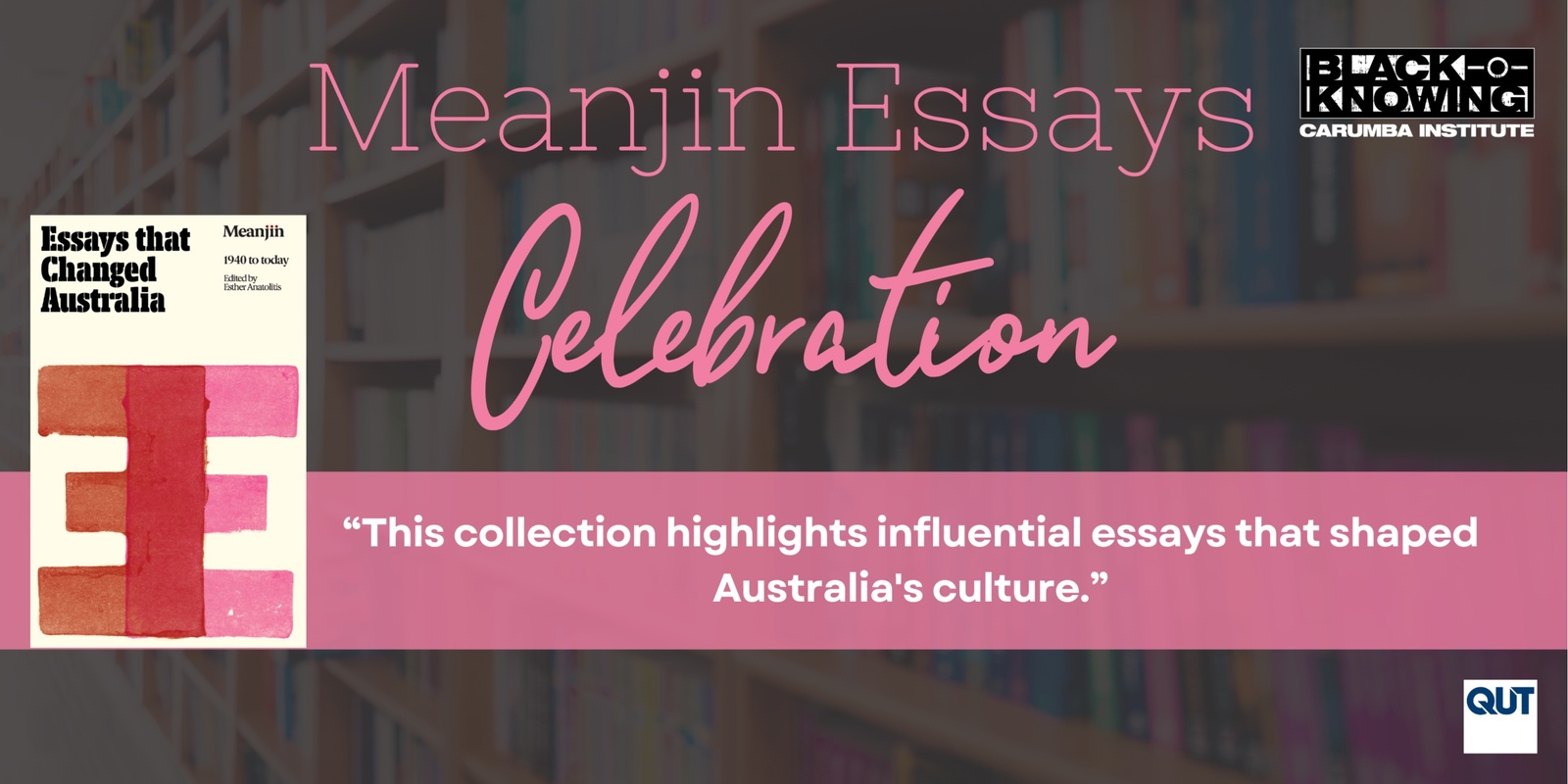Celebration Event: "Essays That Changed Australia: Meanjin 1940 to Today."
Event description
The event will celebrate the recent release of "Essays that Changed Australia: Meanjin 1940 to Today." This curated collection includes powerful essays that have significantly influenced Australia’s culture and society. Among the 20 selected works published by Meanjin Quarterly since 1940 are essays by Indigenous Australian academics Gaja Kerry Charlton, Professor Chelsea Watego and Dr Amy McQuire.
Time
12pm-2.00pm
Panel Discussion Members
Gaja Kerry Charlton
Professor Chelsea Watego
Dr Amy McQuire
Panel Moderator
Angela Barney-Leitch - QUT’s Deputy Vice-Chancellor, Indigenous Australians
BIOS
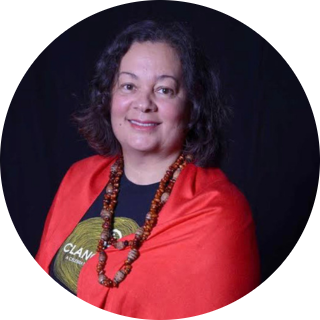
Gaja Kerry Charlton - Essay - ‘Makunschan, Meeanjan, Miganchan, Meanjan, Magandjin’ from Meanjin 82.2 Winter 2023
Gaja Kerry Charlton, a Yagarabul person, Elder and traditional owner in three native title claims—Yuggera Ugarapul Peoples, Quandamooka and Kabi Kabi—with Gulf ties to Walangama Country. Gaja Kerry is Indigenous Industry Fellow at the School of Languages and Cultures, University of Queensland.
Gaja Kerry’s essay, titled ‘Makunschan, Meeanjan, Miganchan, Meanjan, Magandjin’, explores the cultural, linguistic and social history of the Brisbane metonym, the Yagara word ‘Meanjin’, from which the journal’s origins and name derive.
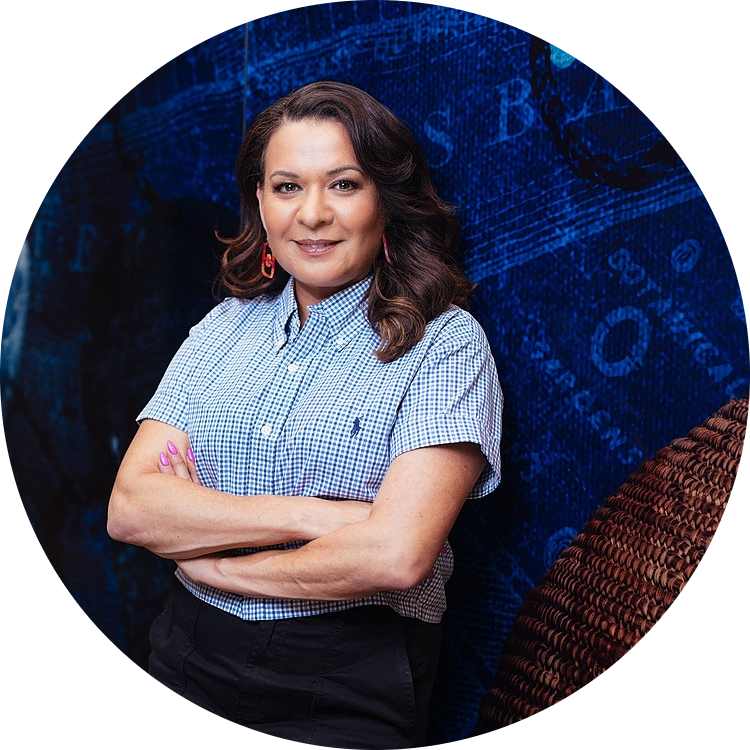
Professor Chelsea Watego - Essay ‘Always bet on Black (power)’ from Meanjin 80.3 Spring 2021
Professor Chelsea Watego (formerly Bond) is a Munanjahli and South Sea Islander woman with over 20 years of experience working within Indigenous health as a health worker and researcher. She is the Executive Director of QUT’s Carumba Institute, and her scholarship has drawn attention to the role of race in the production of health inequalities. Her current ARC Discovery Grant seeks to build an Indigenist Health Humanities as a new field of research; one that is committed to the survival of Indigenous peoples locally and globally, foregrounding Indigenous intellectual sovereignty and leading to the formation of an Indigenous critical race theory. She is a prolific writer and public intellectual, having written for Indigenous X, NITV, The Guardian, and The Conversation. She is a founding board member of Inala Wangarra, an Indigenous community development association within her community, a director of the Institute for Collaborative Race Research, but most importantly, she is also a proud mum to five beautiful children. Her debut book: Another Day in the Colony, published by UQ Press, was released in November 2021 and met with critical acclaim.
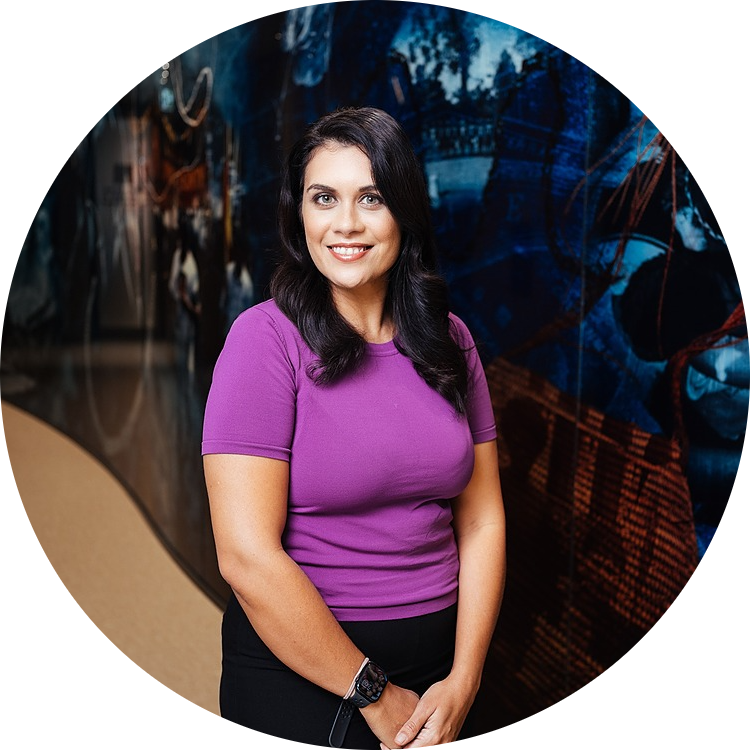
Dr Amy McQuire - Essay ‘The act of disappearing’ from Meanjin 81.4 Summer 2022
Dr Amy McQuire is a Darumbal and South Sea Islander woman from Rockhampton, Central Queensland. She is currently a Senior Lecturer at QUT Carumba Institute. She received her PhD from the University of Queensland. Amy's research interest is in race and representation, focusing specifically on the crisis of disappeared Aboriginal and Torres Strait Islander women and girls, as well as the violence of the justice system. Her background is in journalism, where she has over two decades of experience working in independent and Aboriginal media. She has previously been the editor of two national Indigenous publications (National Indigenous Times and Tracker Magazine), and has been a correspondent for NITV National News, BuzzFeed News Australia and New Matilda. Her writing has been featured widely, and she has co-hosted the investigative podcast Curtain the Podcast for the past eight years.In 2021, she published her first children's book 'Day Break' and in 2024, she published her first non-fiction work 'Black Witness: the Power of Indigenous Media.'

Panel Moderator - Ms Angela Barney-Leitch is the QUT Deputy Vice-Chancellor (Indigenous Australians)
Ms Barney-Leitch is a Woppaburra woman with over 30 years of experience working in and with State and Federal Governments, the tertiary sector, and Aboriginal and Torres Strait Islander community-based organisations. For over 20 years she worked within and led Queensland government policy and strategy units. Prior to joining QUT in 2019, Ms Barney-Leitch was the Director of Indigenous Policy and Strategic Innovation for the Queensland Department of Education. Ms Barney-Leitch is also a Land Trustee and Native Title Holder for the Woppaburra Nation.
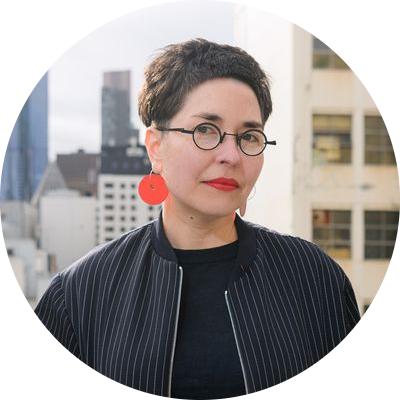
About the Editor - Esther Anatolitis
Editor of Meanjin Esther Anatolitis is one of Australia's most influential advocates for arts and culture. With two decades in creative and media leadership, she is a highly respected champion of artists' voices. Esther comes to Meanjin with extensive literary sector experience: she is a former CEO of Express Media and publisher of Voiceworks, an Emerging Writers' Festival founder, a Small Press Network founding partner, and a former Melbourne Writers Festival programming committee member. Working across multiple languages, she has edited a diverse range of print and online publications. Esther has curated talks programs, honoured many a PEN empty chair, and mentored zine makers, independent publishers and literary festival directors. A prolific writer and commentator, Esther is one of the nation's most published arts leaders; her book Place, Practice, Politics was published in 2022, and her work is archived at estheranatolitis.net. Esther is Hon A/Prof at RMIT School of Art, a member of the National Gallery of Australia Governing Council, and a long-time reader, subscriber and contributor to Meanjin.
Maria van Neerven
Maria van Neerven is a Mununjali Yugambeh woman from south-east Queensland. Aunty Maria is an emerging poet from the Yugambeh nation living in Meanjin. Her work focuses on colonisation, racism, discrimination, family, and mental health. ‘Growing up in a large Indigenous family’, Maria says, ‘we had to deal with these issues daily’. Her work has been published in journals including Aniko Press, Meanjin and Westerly Magazine 68.2. Maris won the 2023 David Unaipon Award, is one of five recipients of the 2024 Next Chapter Fellowship, and is currently working on her first manuscript.
Parking
Parking on campus is limited. The closest user-pays car park is located in P Block. Please arrange alternative transport if possible.
Tickets for good, not greed Humanitix dedicates 100% of profits from booking fees to charity
